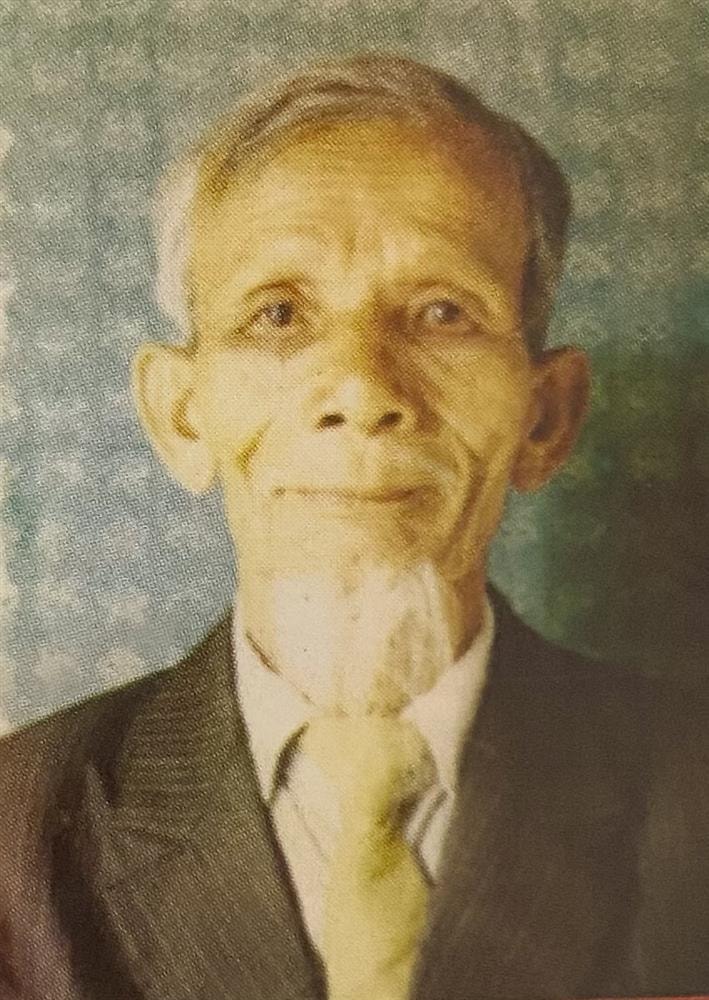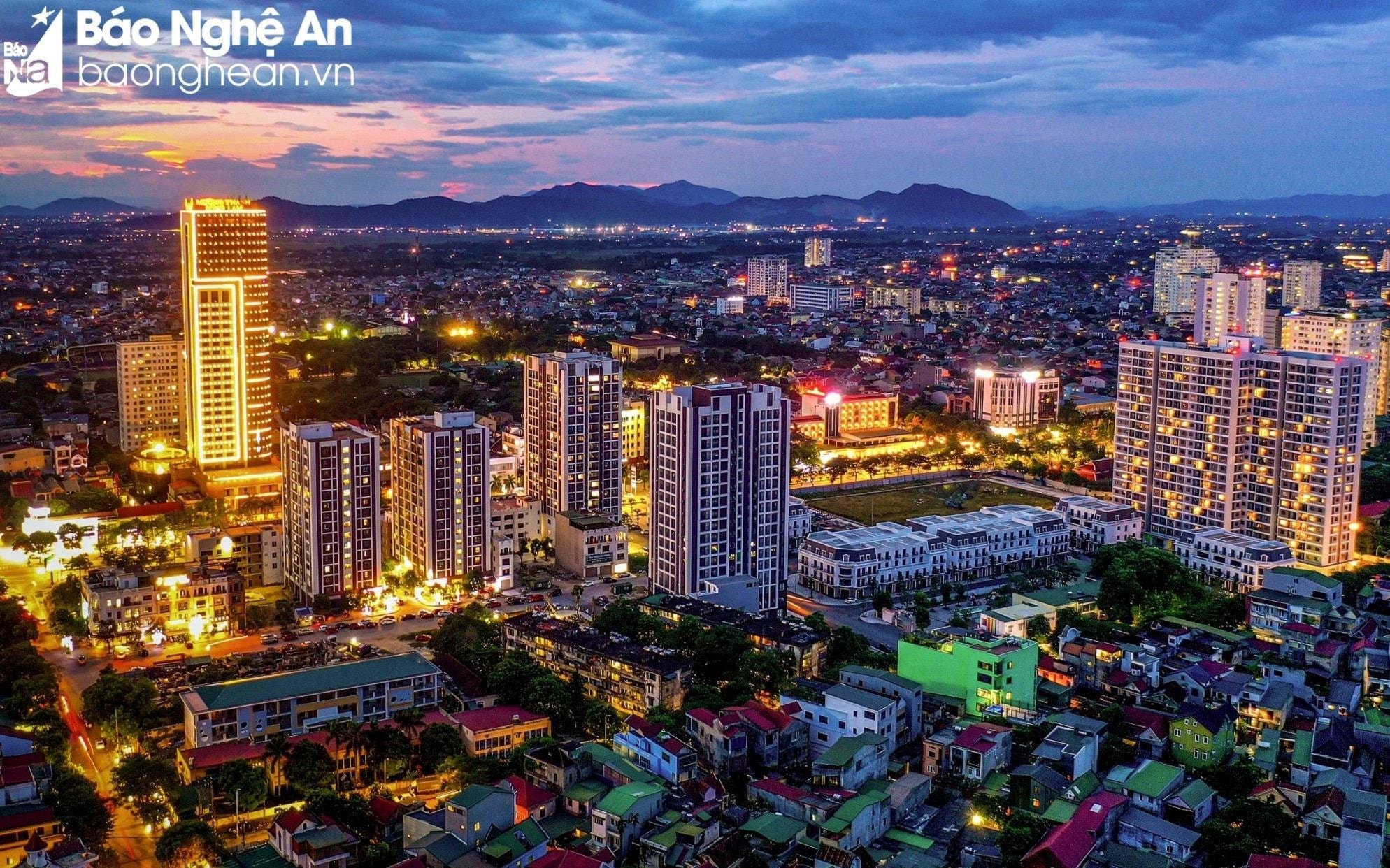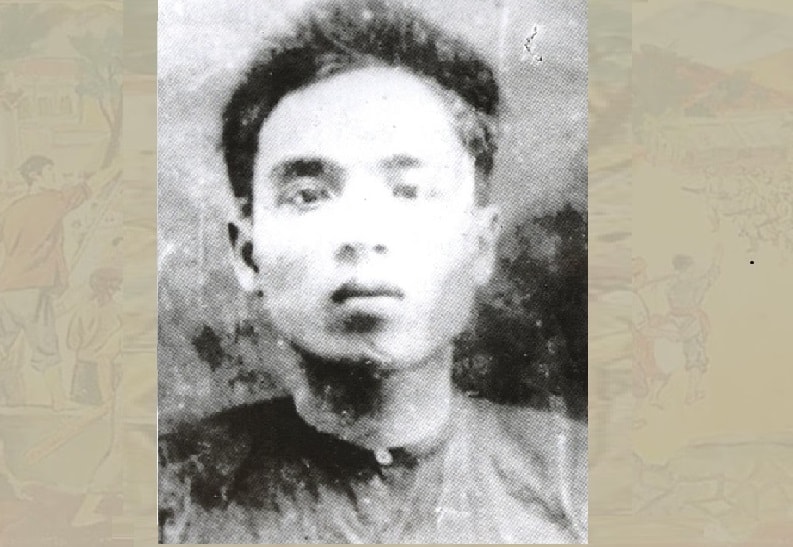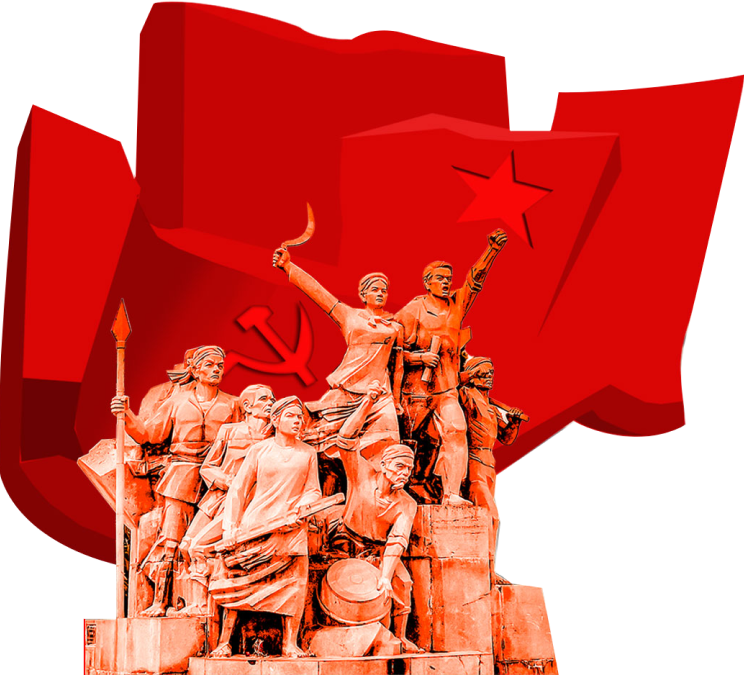Comrade Nguyen Thanh Triem - a staunch communist soldier from his hometown Dien Chau in the Nghe Tinh Soviet movement
Comrade Nguyen Thanh Triem was enlightened early, absorbed progressive ideas, followed the patriotic path of his predecessors, and actively participated in the local revolutionary movement.
Comrade Nguyen Thanh Triem (alias Tan), was born in 1914 in a poor patriotic peasant family in Ly Nhan village, Ly Trai commune, Dien Chau district (now Dien Ngoc commune, Dien Chau district, Nghe An province). With the good traditions of his homeland and family, comrade Nguyen Thanh Triem was soon enlightened, absorbed progressive ideas, followed the patriotic path of his predecessors, and actively participated in local revolutionary movements such as: rallies, demonstrations, and leaflet distribution...

On February 3, 1930, the birth of the Communist Party of Vietnam opened a major turning point for the Vietnamese revolutionary movement in general and Nghe Tinh in particular - where the movement developed most strongly. On March 15, 1930, at the house of comrade Vu Duy Trong (Ly Nhan village), the Khoan Dong Party Cell was established on the basis of the Tien Ly Party Cell with comrade Le Tho as Secretary.
After its establishment, the Party cell paid special attention to propaganda and education work for the masses through various forms: such as mass meetings according to organizations, organizing rallies in the whole commune, disseminating the Party's policies, distributing leaflets, hanging hammer and sickle flags, etc. Comrade Nguyen Thanh Triem was enlightened by Comrade Le Tho (Party cell Secretary) and assigned the task of working as a tailor at Van market to grasp the situation in preparation for the upcoming struggles.
On the occasion of the anniversary of the Russian October Revolution, the Dien Chau Government Committee organized a general demonstration to show the strength of the masses, including 5 communes, in the Dien Chau government office. From the afternoon of November 6, 1930, the atmosphere was jubilant with leaflets and documents of the revolution, all in a state of readiness. On the morning of November 7, 1930, the crowd like a rolling wave headed towards the government office, chanting slogans as they went: Support the Soviet government.
Comrade Nguyen Thanh Triem and the people of Tien Ly cheered and responded, demanding tax reduction and land distribution to the poor. In joy, everyone followed the red hammer and sickle flag fluttering in the wind and surrounded the citadel.
The prefect Vu Trong ordered his soldiers to close the city gates and ordered the French soldiers and the green-clad soldiers to shoot at the protesters, killing and injuring many people. But one person fell down, another stood up, and the protesters advanced, shouting slogans to make the enemy pay for the blood debt of their compatriots and comrades. Faced with the enemy's savage terror, the Demonstration Steering Committee instructed the protesters to retreat to preserve their forces.
After the demonstration on November 7, 1930, the revolutionary movement in Dien Chau reached its peak. The feudal government in the villages and communes was completely paralyzed, the village chiefs and the five village chiefs fled or lay dormant. Mass organizations such as the Women's Union, the Communist Youth Union, the Red Farmers' Association, and the Red Self-Defense Force were established, attracting a large number of people to participate. The Agricultural Commune Committee in Tien Ly was headed by Le Sy Huyen as Secretary. The members were Vu Trong, Nguyen Nhan, Nguyen Bau, Nguyen Le Mai, Nguyen Sau, Nguyen Thi Em, Nguyen Thanh Triem... After its establishment, the Agricultural Commune Committee and the Rural Village Committees actively led and mobilized the people to continue the struggle against the colonial feudal regime and to take care of village affairs as a Soviet government organization.
But only a short time later, before the victories of the struggle movement of the people of Dien Chau and other localities in Nghe Tinh. The tyrants were afraid, and tried every way to collude with the French colonialists to suppress it. They tried their best to terrorize, increased the number of soldiers in blue uniforms, secret agents, and officials who were notorious for their evil repression. In the villages, day and night, the sound of guns and gongs echoed...
In December 1931, the Khoan Dong Party Cell was broken up, many communist party members and patriotic masses were shot or imprisoned, comrade Nguyen Thanh Triem and a number of other comrades retreated into secret activities to wait for the right opportunity. By 1933, most of the party members who survived the terror sought to contact the Party organizations to continue activities to consolidate and reorganize the force.
In early 1936, when the world was becoming increasingly complicated, facing the threat of fascism and world war, the Party Central Committee advocated temporarily putting aside the slogan of expelling French imperialism, the landlord class and giving land to the peasants, and only set out the immediate goal: "Fighting against the reactionary colonial regime, against fascism and war, demanding freedom, democracy, food, clothing and peace".
The Indochinese Democratic Front was established, with a form of struggle that was both secret and openly legal. Comrade Nguyen Thanh Triem and Le Ngoc Hai, with the support and assistance of the Xuan An Street Party Cell, mobilized the youth of Khoan Dong to organize a meeting at Mr. Le Thinh Khanh's house to prepare for the Congress to establish Thanh Nien Tan Tien (later renamed Thanh Nien Dan Chu). The Tien Ly Democratic Youth Union enthusiastically campaigned for the Indochinese Democratic movement.
The opening of the new phase was the Indochina Congress movement. Key comrades such as Dau Thang, Nguyen Thanh Triem, Vu Trong and Le Dan Luong, along with a number of other young people, especially the young people in the Democratic Youth Union of the commune participated.
At the end of 1937, comrades Nguyen Thanh Triem and Le Ngoc Hai were active in Party activities in Xuan An street and led movements demanding people's livelihood and democracy in Tien Ly, which became increasingly diverse and vibrant.
In June 1938, the Government Committee sent comrade Nguyen Thanh Triem and Khoan Dong cadres to lead 350 fishermen from Ly Nhan, Phu Loc, Thanh Bich villages to protest against the tyrannical boat owner Pham Khac Ninh for cutting off the fish portion of his hired workers, and for violating the sharing of profits. The struggle was successful, the relationship between the owner and the worker was fair, and the relationship of production in the fishing industry was untied. Through that, people saw the strength of solidarity among fishermen.
In October 1938, the Nghe An Provincial Party Committee launched a campaign against the Resident General of Central Vietnam who proposed a tax increase project to force the Central Vietnam House of Representatives to pass it by the end of the year. Responding to the Provincial Party Committee's policy on the campaign, Khoan Dong received the most signatures, so comrade Nguyen Thanh Triem (District Party Committee member) and comrade Le Ngoc Hai were assigned by the Provincial Party Committee to bring the People's Petition to Vinh to give to the congressman Luong Trong Hoan. On September 16, 1939, the Central Vietnam House of Representatives voted to abolish the project to increase personal tax and then abolish the project to increase land tax, thanks to which our people were able to reduce some of their suffering.
In November 1939, at the 6th Central Committee Conference of the Party, our Party stated: “Japan will invade Indochina, France will surrender to Japan. The ruling regime in Indochina will become an extremely brutal militarist fascist regime. The contradiction between our people and imperialism will become the most intense and fierce.” From then on, our Party clearly stated the immediate goal: “Overthrow the imperialists and their lackeys, liberate the peoples of Indochina, and make Indochina completely independent.
Temporarily put aside the slogan of land revolution, establish the Democratic Republic government, replace the Democratic Front with the Indochinese National United Front against imperialism". The timely direction of the Party brought new light to the revolutionary movement of our country. For the people of Tien Ly, they had just successfully organized the anti-fascist movement, demanding people's rights and democracy. At this time, comrade Nguyen Thanh Triem was a member of the Party Committee, a reliable support for the people of Tien Ly.
On February 8, 1940 (Spring of the Year of the Dragon), comrade Nguyen Thanh Triem, along with comrades Le Dan Luong, Nguyen Phu, Nguyen Truc, Nguyen Nhan, Vu Trong, Cao Ba Tho, Dau Tuan Tri, Dau Thang, Ngo Pham Ta, Tran Van Ngoc, Dang Ba, Nguyen Viet Ton, Nguyen Duy, Nguyen Mien Tu, Nguyen Le Ngu, Ngo Sy Nai... organized a memorial service to commemorate the 10th anniversary of the death of martyr Le Sy Than - the first party member of Tien Ly. This was also an opportunity to propagate the Party's policies and guidelines to the people.
On November 25, 1940, while on his way to carry out his mission, comrade Nguyen Thanh Triem was captured by the enemy. In July 1941, the Southern Court of Nghe An province opened a trial, they sentenced him to 18 years of hard labor and 18 years of house arrest (according to the verdict 136 dated July 18, 1941) and exiled him to Buon Ma Thuot prison on October 2, 1941), on charges of communist propaganda.
During the years of imprisonment and exile, comrade Nguyen Thanh Triem and the communist soldiers always upheld the spirit of a communist soldier, maintaining a firm belief in the revolution led by the Party.
In early 1945, he was released and returned to his hometown. Together with comrades Le Dan Luong, Dau Thang and Luong Bon, he quickly established Viet Minh Khoan Dong - one of the district's Viet Minh Le Sy Than organizations and appointed comrade Luong Bon as the general director. Other comrades such as: Le Dan Luong, Dau Thang, Nguyen Nhan, Vu Trong, Nguyen Duy, Nguyen Thanh Triem, Nguyen Truc... each received an important task such as: director of Viet Minh, taking control of the Bao An Doan and Thanh Nien Phan Anh forces, propagandizing and mobilizing them to join the Viet Minh national salvation organizations.
In addition to the six party members with aliases: Viet, Nam, Dan, Chu, Cong, Hoa, the cell also had five party members with other aliases: Tu, Hai, Giai, Huynh, De. The conference also elected comrade Nguyen Thanh Triem as Party Cell Secretary.
After the August Revolution succeeded, on August 20, 1945, implementing the above policy, Dong Hai commune was established. However, like many other localities, Dong Hai commune had to face difficulties and challenges that were "hanging by a thread". Comrades: Nguyen Truc, Nguyen Thi Dung, Nguyen Thanh Triem, Dang Ba and Nguyen Lien... with the aliases: Viet, Nam, Dan, Chu, Cong, Hoa, together with comrades Nguyen Huu Tich, Nguyen Duy, Vu Trong, Nguyen Nhan, Dau Thang, Dau Khuy, Tran Quynh, who were the core members of the movement to seize power in Khoan Dong, organized activities and meetings to discuss the implementation of the next tasks in the new period at the family of Mr. Nguyen Doan (father-in-law of comrade Nguyen Thanh Triem). The comrades unanimously proposed to the superiors to restore the Party organization at the grassroots level, the To Kieu Party Cell (April 1930). Therefore, this meeting is also considered as the first Conference of the provisional branch.
Based on the current situation, emphasizing the meaning of national unity and solidarity, the Conference also unanimously agreed to introduce Mr. Dang Khiem (a generous boat owner, a progressive gentleman) as Chairman of the Provisional Revolutionary Committee. The Revolutionary Committee at this time, in addition to Mr. Khiem, also included Mr. Nguyen Thanh Triem (Vice Chairman), Mr. Dau Thang (Economic Commissioner), Nguyen Huu Tich (Military Commissioner) and Ngo Sy Nai (Secretary Commissioner). From here, the Party Cell directly assisted the government as a bridge with the people. This meeting ended at 2:00 p.m. on October 20, 1945.
In early November 1945, Mr. Nguyen Thanh Triem (Party Cell Secretary), Luong Bon (Chief of Viet Minh) and Dang Khiem (Chairman of the Administrative Committee) chaired the Joint Military - People - Government - Party Conference at Tien Son Pagoda to disseminate the Decree dated September 8, 1945 on the establishment of the Government's Popular Education Service.
At the end of November 1945, comrade Nguyen Thanh Triem was appointed by the Provincial Party Committee to be the provisional Secretary of the Dien Chau Provincial Party Committee. Comrade Dau Thang was elected as the Party Cell Secretary. The Party Committee promoted the popular education movement to a new level.
After the decision of the Provincial Party Committee to recognize Dong Hai commune as having an official Party cell, comrade Nguyen Thanh Triem (former Secretary of the Provisional Provincial Party Committee) on behalf of his superiors disseminated President Ho's letter "To the comrades of the province". Following his teachings, the Party Cell led the stabilization of people's lives, initially built material facilities, organized self-sufficient production, and was ready to fight against the French colonialists who returned to invade our country. The Party Cell also discussed the "resistance and national construction" directive issued by the Party Central Committee on November 25, 1945. The work of eliminating internal rebels, fighting against French colonialism and improving people's lives were all carefully discussed...
In October 1964, comrade Nguyen Thanh Triem temporarily stopped his revolutionary activities and returned to his hometown to rest. He died in 1992 at the age of 78.
With his contributions to the revolutionary cause of the Party and the People, he was awarded by the State the Third Class Independence Medal, the Second Class Anti-French Medal, the First Class Anti-American Resistance Medal and many other noble medals and orders.
------
References:
- Historical books of Dien Chau district 1930 -2005 - Social Publishing House - Hanoi 2005.
- Historical records of Dien Ngoc commune 1930-2010 - Publishing House of Information and Communications - Hanoi 2010.
- Artifact records kept at XVNT Museum - 2007.
- Prison records are kept at the XVNT Museum.





